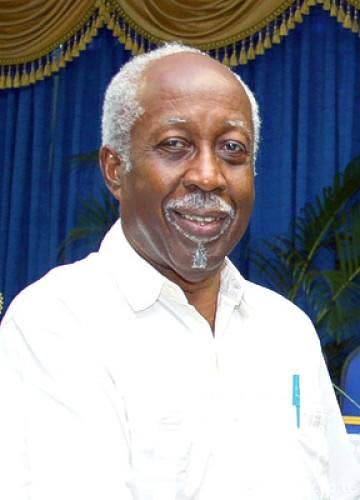Reparations?

REGINALD DUMAS
THE CARICOM website says that the mandate of the Caricom Reparations Commission (CRC), established by the heads of government in 2013 with a ten-point action plan, is “to prepare the case for reparatory justice for the region’s indigenous and African-descended communities who are the victims of crimes against humanity (CAH) in the forms of genocide, slavery, slave-trading and racial apartheid.”
These communities, the website continues, “have a legal right to (such) justice;” those “who committed the crimes, and who have been enriched (therefrom), have a reparatory case to answer.” In this regard, European governments are especially targeted. They were “the legal bodies that instituted the framework for developing and sustaining (the CAH)…(and they) served as the primary agencies through which slave-based enrichment took place, and as national custodians of criminally accumulated wealth.”
A long list of European governments’ sins is then given, but the website concedes that these governments have persistently objected to the CRC mandate and “have refused to acknowledge (CAH) or to compensate victims and their descendants.” Seven years after its establishment, the CRC seems not yet to have achieved even the first of its action plan’s ten points: a full formal apology from the European governments. (No wonder, if the governments don’t accept its mandate.)
The CRC established a Reparations Committee, which is chaired by the UWI vice-chancellor, Sir Hilary Beckles. Earlier this month, he estimated the region’s reparation needs at US$50 billion. This is not money to be paid to the regional governments or to individuals. Rather, said Beckles, the reparations are “about laying the foundation for investment in the…economic and social development and transformation of the Caribbean…(and) about building institutions…” But in a covid19 world, and if your mandate isn’t accepted, what, realistically, are your chances of success?
And now the UK government has thrown another spanner in the works. Last month it issued curriculum guidance to schools in England. Among other things, these schools “should not under any circumstances use resources produced by organisations that take extreme political stances on matters.” And what are examples of such stances? “(A) publicly stated desire to abolish or overthrow democracy (or) capitalism…(or promote) victim narratives…harmful to British society.”
Speaking to the capitalism issue, a prominent Labourite has said that “(on) this basis it will be illegal to refer to large tracts of British history and politics including the history of British socialism, the Labour Party and trade unionism, all of which have at different times advocated the abolition of capitalism.” I would also have thought that in a democracy, as Britain says it is, anti-democracy opinions were an integral part of education.
And since the British slave traders and plantation owners were capitalists, are English schoolchildren therefore not to be taught about their ancestors’ behaviour? Would the next step be to pretend that slavery and the slave trade didn’t happen at all? Is British history about to be sanitised? Perhaps covid19 is having a more profound impact than I imagined. George Orwell, where are you?
As for the (no doubt deliberately) undefined “victim narratives,” we may soon hear that Black lives do not matter. And the CRC, with its emphasis on the word “victims,” may now have been stymied by the mentality revealed in the UK schools “guidance.” There wasn’t ever going to be a “full formal apology” – can you envisage Boris Johnson apologising to “piccaninnies” (his description of Black people)? – but you could hope for some other aspects of the action plan. What now?
UK organisations are already speaking out against their government’s “guidance,” which in their view, according to the UK Guardian, “would prevent young people from engaging with teaching about racism (and discourage) the use of material…that seeks to draw attention to the disproportionate impact of state violence (including against Black men).”
Priyamvada Gopal is a Cambridge University professor and a formidable intellect; her 2019 book Insurgent Empire: Anticolonial Resistance and British Dissent is for me a masterpiece of extensive research and of elegant, incisive refutations both of the passive “victimhood” theory (“victimhood” as distinct from “victimisation”) and of propaganda on British “enlightenment.” She contemptuously dismisses the “victim narratives” concept.
She writes: “It is convenient for the powerful, of course, to demand that the spotlight be turned away from the harm they foster, whether through bigotry or predatory capitalism. Historical amnesia works in their favour…(W)e should honour black history for what it tells us about the experience of persecution – as well as the manifold ways in which people coped, resisted, and even produced music, art and literature while doing so…Black history teaches us that, in the face of great suffering, people have the power to change things.”
The CRC has some reflection to do.


Comments
"Reparations?"